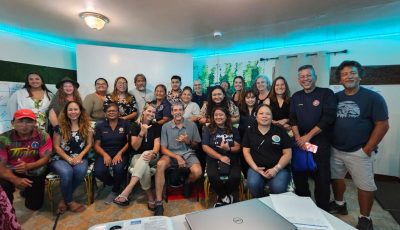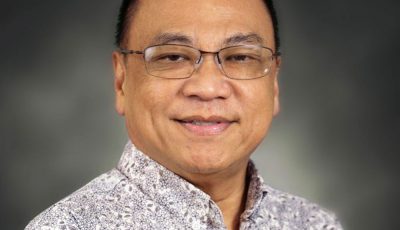‘CHCC board has no authority to credential staff’
The Attorney General’s Office has determined that the Commonwealth Healthcare Corp. board has no legal authority over the credentialing of medical staff for the public hospital.
Attorney General Joey San Nicolas made this clear in his May 27 opinion in response to a question from CHCC CEO Esther L. Muña, who received a no-confidence vote from majority of board members due to a host of issues, including her inaction on Board Resolution 2014-02, which directed her to issue within 10 days a 90-day medical privilege to Dr. Grant Walker or show cause why she should not do so.
“No. The board of trustees does not have the authority to issue a resolution which directs the CEO to make a decision concerning the credentialing of a physician; the board’s role with respect to this matter may only be advisory,” said San Nicolas in his two-page opinion issued on Tuesday.
The opinion further states that the “board’s role is limited to advising the CEO” only.
According to the San Nicolas, Public Law 16-51 provides that the board may periodically issue non-binding advisory recommendations to the CEO.
With respect to the corporation’s finances and management, he reiterated that the board’s role is no more than advisory.
Citing the law that created the corporation, San Nicolas said the CHCC board has only a few exceptions as an advisory body and these include strategic planning, recruitment and retention of qualified CEO, credentialing of medical staff, and ensuring the highest possible quality of care.
But San Nicolas said this “exception” provision should not be mistaken that the CHCC board has governing power.
“This provision cannot be construed to imply that the board has a governing, non-advisory role with respect to these four areas of concern. Public Law 16-51 explicitly provides that role with regards to management of hospital, which would include credentialing of hospital medical staff, is merely advisory,” added San Nicolas.
Narrow interpretation
When asked for comments yesterday, CHCC board chair Joaquin Torres said the AG’s opinion is a “very narrow interpretation” of the law.
“I was handed this afternoon a very narrow interpretation of Public Law 16-51 by the Attorney General. It appears that the opinion focused on supporting the position taken earlier by one of its staff and ignored other relevant provisions of the law that may not tend to support that position. But this is not what Board Resolution 2014-02 is about,” he told Saipan Tribune.
According to Torres, the resolution, “when or if read in context, is not about who has authority over credentialing of the medical staff but about due process.”
“The resolution was about ensuring that government, in this case the governing body, treats individuals fairly and does not abuse its power by acting against its citizens in an arbitrary, oppressive, or capricious manner,” added Torres.
The CHCC board, by a 4-2 vote, adopted the resolution on April 23 after determining that Dr. Walker was not accorded any hearing or due process in his case, which majority of trustees believed is against the credentialing policy of the organization.



























